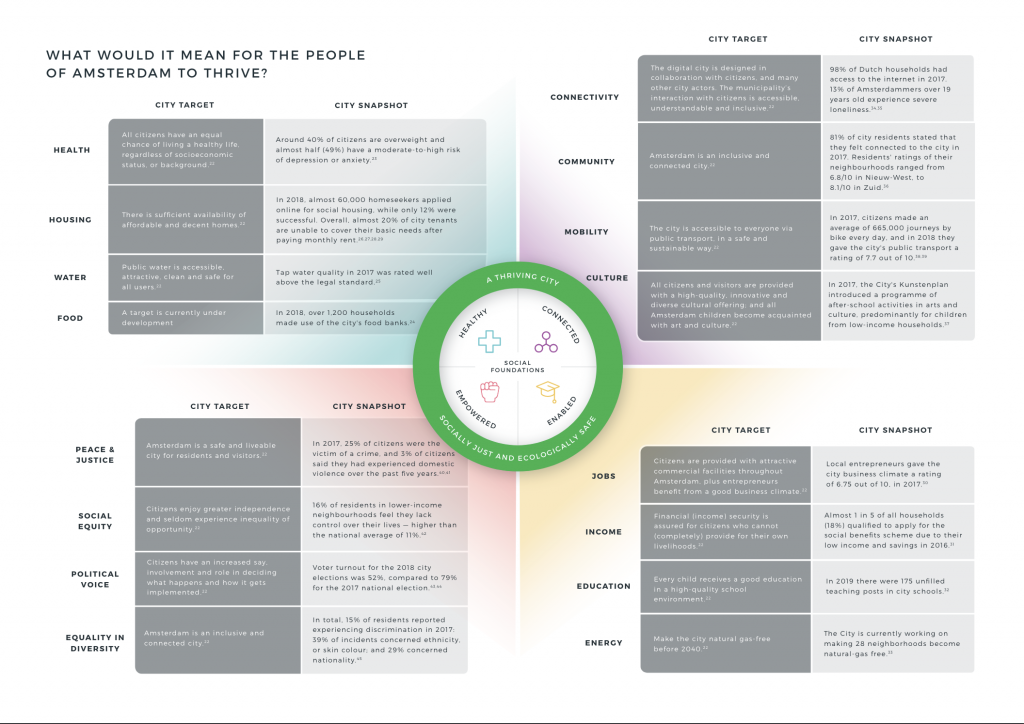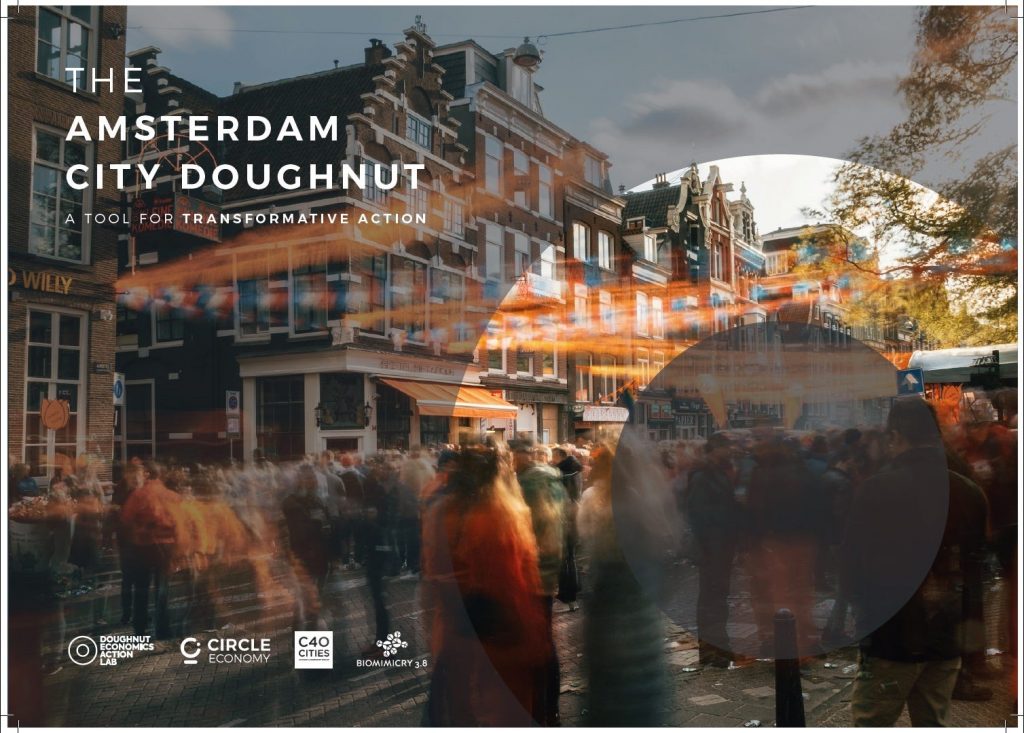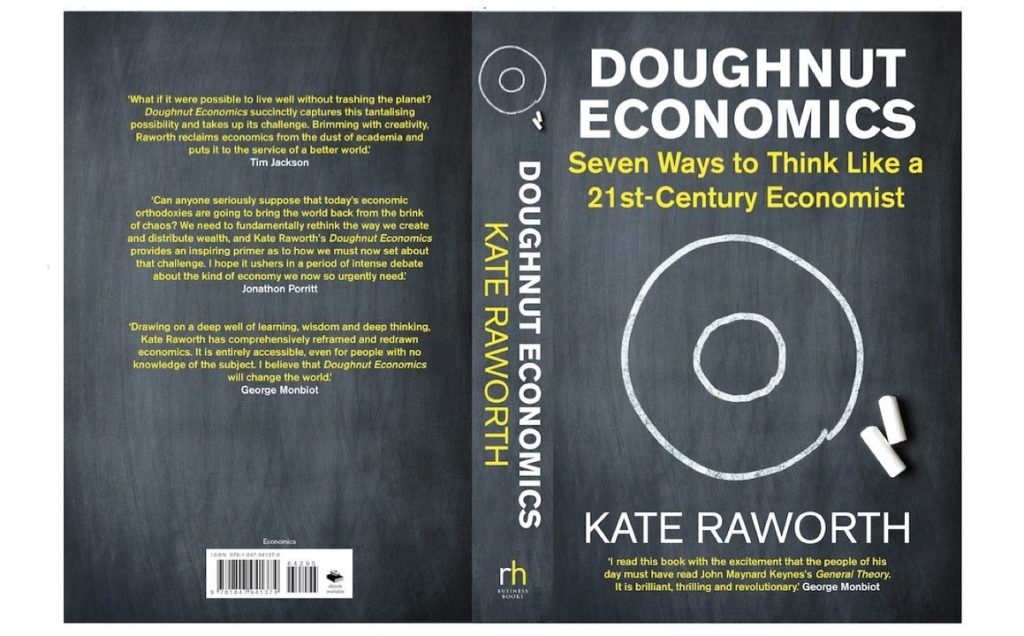
How Amsterdam is building a sustainable economy
In 2020, Amsterdam approved the city’s 2020-2025 circular strategy with a two-year initial practical action plan. The strategy is inspired by Kate Raworth’s doughnut economic model, making it the first city in the world to adopt the concept officially.
“By introducing Doughnut-thinking into policymaking, coupled with the self-organising and dynamic uptake of the Doughnut by the city’s civil society through the Amsterdam Doughnut Coalition, Amsterdam has provided an inspirational and pioneering starting point for turning Doughnut Economics into 21st century transformative action.” – DEAL
Cities are home to more than half of the world’s population. According to the United Nations, the number of people living in cities will increase up to 68% by 2050. Already accounting for over 60% of global energy use and more than 70% of global greenhouse gas emissions, cities have an immense impact on the planet and at the same time offer a huge potential to drive the transformations needed to tackle climate breakdown.
What would it mean for the people of Amsterdam to thrive?
The best answer surely comes from the people themselves. To reflect the lived experience of Amsterdam’s residents, City Doughnut Workshops were held in seven diverse neighbourhoods, bringing City staff together with residents to hear their visions and priorities for a thriving Amsterdam.

The many components of well-being were clustered into four areas healthy, enabled, connected and empowered – visualised in the above graphic. The City’s targets in each of these areas were accompanied by statistics that give a snapshot of the city’s current status, based on data drawn from official city sources.
Copenhagen, Philadelphia and Portland are also taking part
Raworth’s ideas have been generating interest among politicians around the world – she travelled as far as New Zealand for the presentation. In 2019, she founded the “Doughnut Economic Action Lab” platform to help as many people as possible test their ideas. Cities such as Copenhagen, Philadelphia and Portland were the first to join in and declared the doughnut model to be city doctrine.
Worth a check-out:
It is worth taking a look through the full report of the Amsterdam city doughnut – a tool for transformative action. The report can be an inspiration for other cities to follow Amsterdam in building a sustainable, more circular economy for the planet and future generations. Today, DEAL is represented with community initiatives in many cities and has grown its methodologies for businesses and cities to take action towards a regenerative 21st-century economy that works for people and the planet.








Leave a comment